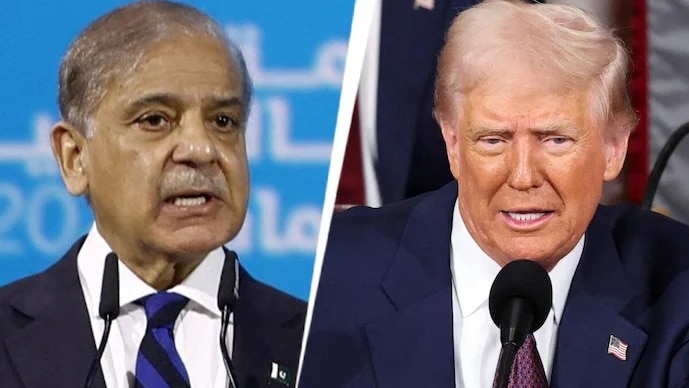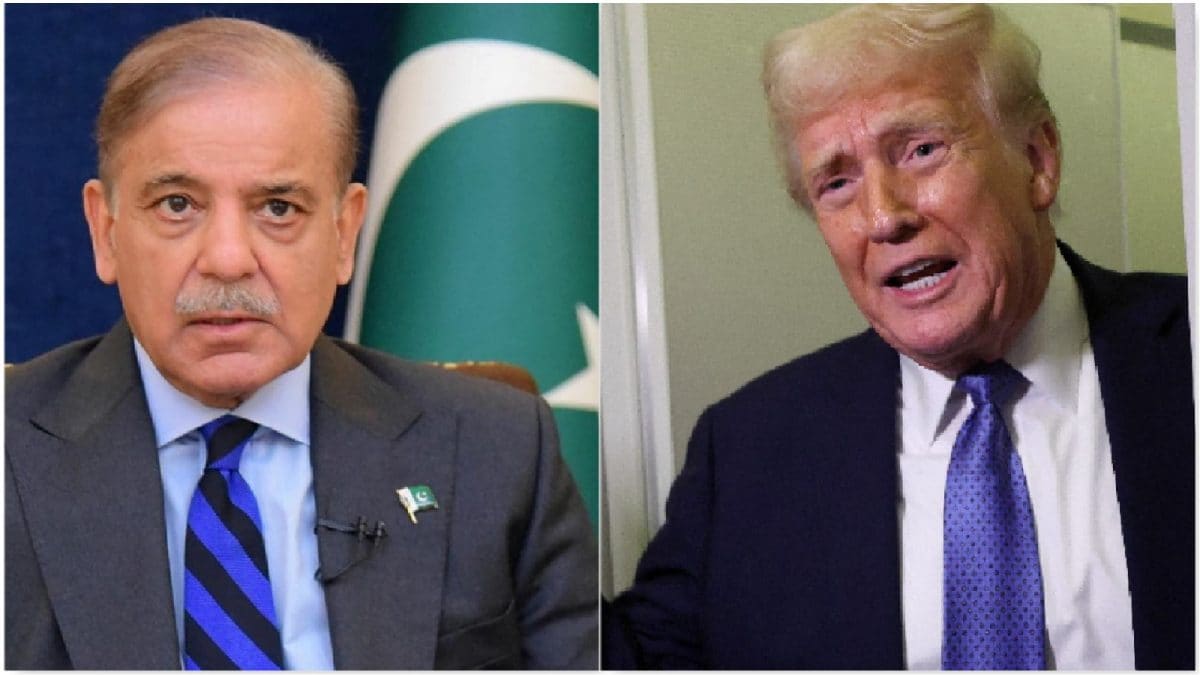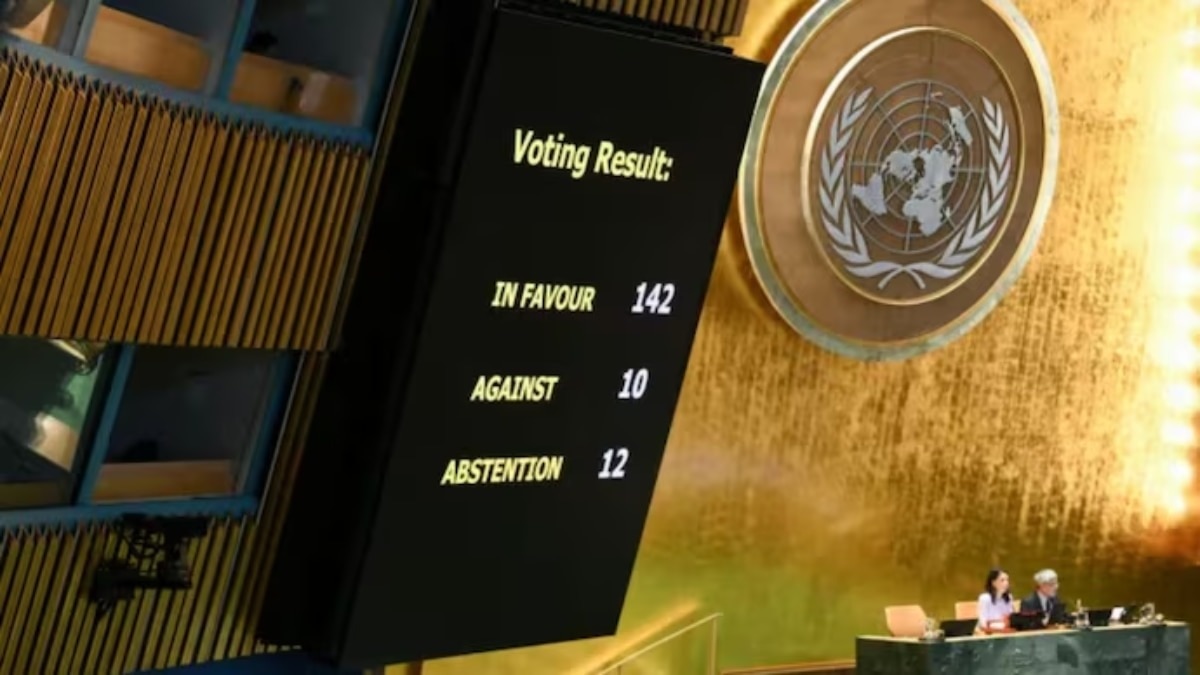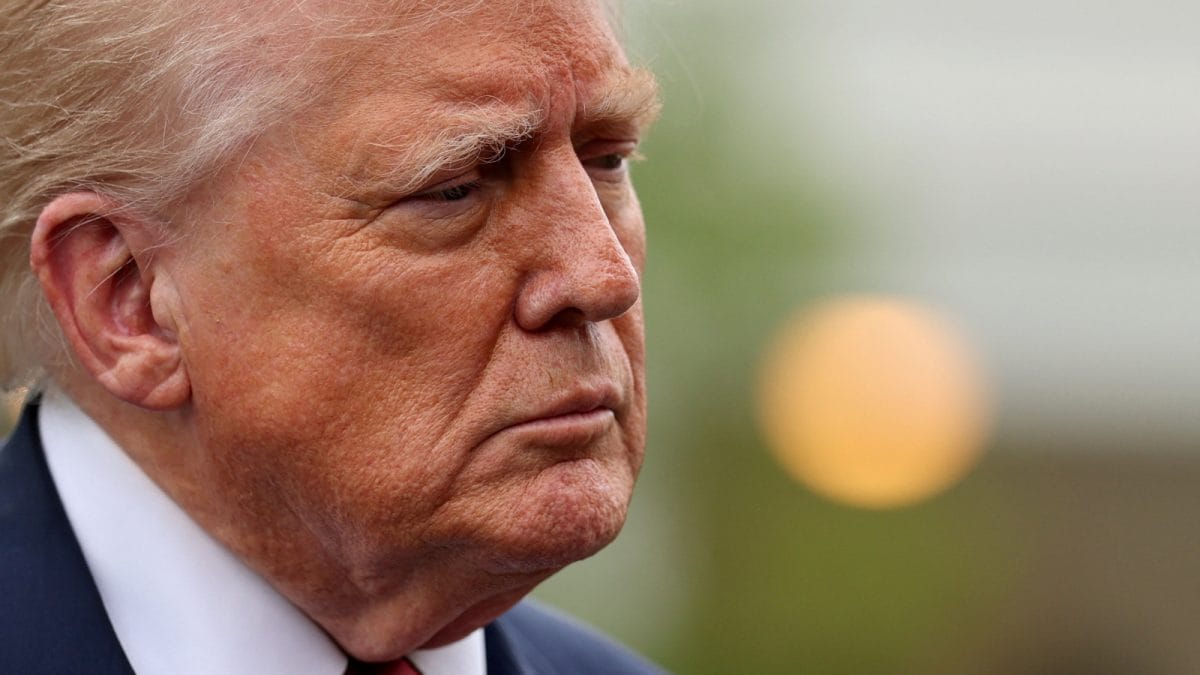Last Updated:July 20, 2025, 16:34 IST
The Eswatini government confirmed that five foreign nationals deported from the US are being held in solitary confinement in undisclosed prisons

The five men deported by the US; Matsapha Correctional Complex near Mbabane, Eswatini. (X/AP)
The arrival of five deportees from the United States to Eswatini has sparked public outrage and concern across Africa, with critics accusing the US of using the small nation as a “dumping ground".
The Eswatini government confirmed that five foreign nationals deported from the US are being held in solitary confinement in undisclosed prisons.
Acting government spokesperson Thabile Mdluli said on Friday that the men pose “no threat to the country or its citizens" and that “critical engagements between stakeholders are still ongoing".
The deportation is the result of “months of robust high-level engagements" between Eswatini and the US, Mdluli said. However, she did not specify how long the individuals would remain in the country or when they would be repatriated, noting that “there are no timelines at present".
Who are the five men deported by the US to Eswatini?
The five men are nationals of Jamaica, Laos, Cuba, Yemen, and Vietnam, and were convicted of serious crimes including child rape, murder, and robbery.
Department of Homeland Security spokesperson Tricia McLaughlin described them as “depraved monsters" whose home countries refused to take them back.
In a series of posts of X, she wrote about them:
1. Vietnamese national: Convicted of child rape— sentenced to 20 years confinement.
2. Citizen of Jamaica: Convicted of murder; sentenced to 25 years confinement; convicted of robbery; sentenced to 6 years confinement; convicted of possession of weapon; sentenced to 6 months confinement.
3. Citizen of Laos: Convicted of second-degree murder and burglary (forced entry); sentenced to 20 years confinement; convicted of operating a motor vehicle under influence of controlled substance; charged with aggravated assault with deadly weapon and possession of methamphetamine.
4. Citizen of Cuba: Convicted of first-degree murder and aggravated battery; convicted of aggravated battery of a police officer, grand theft-vehicle, aggravated flight-eluding law enforcement reckless driving; sentenced to 3 years confinement; confirmed Latin king street gang member.
5. Citizen of Yemen: Convicted of second-degree homicide; convicted of assault and battery; convicted of resist and obstruct officer; sentenced to 17 days confinement; convicted of cruelty to dependent adult; convicted of assault with the intent to do great bodily harm less than murder or by strangulation; sentenced to 60 months confinement.
NEW: a safe third country deportation flight to Eswatini in Southern Africa has landed— This flight took individuals so uniquely barbaric that their home countries refused to take them back.These depraved monsters have been terrorizing American communities but thanks to @POTUS… pic.twitter.com/TsanIX8H4T
— Tricia McLaughlin (@TriciaOhio) July 16, 2025
Where is Eswatini? Is it a poor country?
Eswatini is a small, landlocked country in southern Africa, bordered by South Africa on three sides and Mozambique to the northeast. Formerly known as Swaziland, it changed its name to Eswatini in 2018. Despite its small size, it has two capitals: Mbabane (administrative) and Lobamba (royal and legislative). It lies near the southeastern coast of Africa but has no coastline itself.
Eswatini, with a population of about 1.23 million (2023), is classified by the World Bank as a lower-middle-income country, but it faces widespread poverty, high unemployment, and deep inequality. Over 58% of its population lives below the national poverty line, and about 36% live on less than $2.15 per day (PPP). Youth unemployment exceeds 48%, and the country has a high GINI index (~0.55), indicating major income inequality. It has one of the world’s highest HIV/AIDS prevalence rates.
In April, the country was included in a list of US tariffs announced by President Donald Trump, with Eswatini exports facing a 10% rate starting August 1.
Are US deportations legal?
On June 23, 2025, the U.S. Supreme Court lifted a lower-court injunction that had previously blocked the government from deporting noncitizens to countries other than their own unless those destinations were explicitly listed on removal orders. This effectively allowed the Trump administration to resume so‑called third-country deportations without offering deportees a chance to raise Convention Against Torture protections—meaning the government could send people to countries where they had no prior ties.
Why Eswatini is worried
PUDEMO, an opposition party, warned that accepting foreign deportees “poses a serious risk to our already vulnerable communities" that are battling high crime rates. The Swaziland Solidarity Network also criticised the move as an example of “clear racism" and said Swazi prisons are already overcrowded.
Will they be sent back to home countries
Mdluli said Eswatini is working with the US and the Organisation for Migration (IOM) to facilitate the eventual transit of the deportees to their countries of origin, although the terms of the agreement remain classified.
Why Eswatini?
This is part of the Trump administration’s broader effort to negotiate deportations with third-party countries such as South Sudan, Libya, Rwanda, Benin, Mongolia, and others—especially in cases where deportees’ home nations refuse to accept them. Critics say some of these partner countries have poor human rights records, raising ethical and legal questions .
Observers have speculated that Eswatini agreed to the deal in exchange for political or economic incentives, given U.S. cuts in foreign aid and initiatives to influence governance in smaller countries.
With Agency, ANI, CNN Inputs

At the news desk for 17 years, the story of her life has revolved around finding pun, facts while reporting, on radio, heading a daily newspaper desk, teaching mass media students to now editing special copies ...Read More
At the news desk for 17 years, the story of her life has revolved around finding pun, facts while reporting, on radio, heading a daily newspaper desk, teaching mass media students to now editing special copies ...
Read More
News explainers ‘Depraved Monsters’: Who Are The 5 Men Deported By Trump’s US To African Nation Eswatini?
Disclaimer: Comments reflect users’ views, not News18’s. Please keep discussions respectful and constructive. Abusive, defamatory, or illegal comments will be removed. News18 may disable any comment at its discretion. By posting, you agree to our Terms of Use and Privacy Policy.

 1 month ago
1 month ago


















